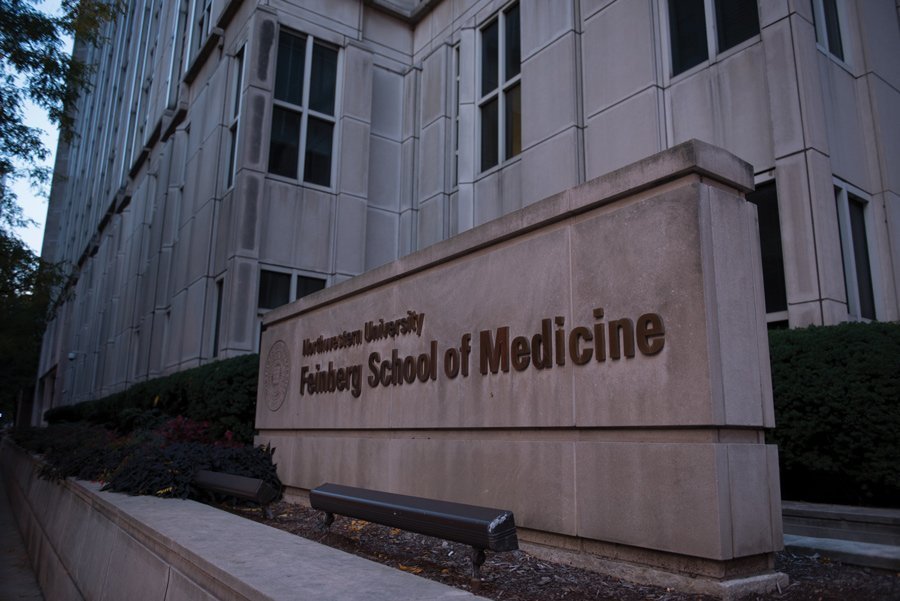Illinois Prison Project ambassadors discuss incarceration and re-entry at One Book event
Daily file photo by Katie Pach
The Feinberg School of Medicine. Illinois Prison Project ambassadors Willie Hobson, Michael Penny and Renaldo Hudson discussed their experiences with the criminal justice system at a virtual panel.
April 19, 2021
Illinois Prison Project Education Director Renaldo Hudson and ambassadors Willie Hobson and Michael Penny criticized the carceral system and advocated for re-entry support at a Thursday panel.
Feinberg Prof. Linda Teplin moderated the event, which was sponsored by One Book One Northwestern, Center for Health Equity Transformation and the Health Disparities and Public Policy Program.
By sharing their experiences in the system and advocating for change, Hobson, Penny and Hudson — whose life sentences were commuted by Gov. J.B. Pritzker last July — said they hope to make it easier for incarcerated individuals to re-enter society.
Penny said the biggest misconception about the criminal justice system is that taxpayer dollars are being well spent.
“If you can spend more money on incarceration than you can spend on rehabilitation, that’s unfair,” Penny said.
Penny received his life sentence under the three strikes law, which guarantees a life sentence after three felony convictions. He said he’s currently in the process of appealing the third strike because the alleged crime was not only a case of misidentification, but also unfair, since a first-time offender would only serve five years for the crime he committed.
Hobson said the criminal justice system makes it almost impossible for individuals charged with a major offense to get an education. He added that individuals sentenced to prison for longer than a year should have the opportunity to get a General Educational Development degree.
But more education doesn’t just include academics, Hobson said. He said he still doesn’t know how to use a phone or access the internet, despite being out of prison since June. The education he did receive on re-entry was outdated, he added.
“There should’ve been something set up in there where you could learn how to keep up with society,” Hobson said.
Hudson said what the speakers all experienced while being incarcerated was not a criminal justice system but a “criminal legal system.”
He added that there is a lack of support once they leave prison and reenter society because the criminal justice system is focused on punishment and not justice.
“If it was justice, then it would be (advocacy) on both sides of the argument and not just one side with all the resources…given to the prosecutor to prove how to justify locking someone up for the rest of their life,” Hudson said
Hudson said the process for receiving proper identification was difficult. At the police station where he was originally processed, officials told him that there was no evidence of his existence, Hudson said.
The identification process comes with implications beyond just proving people’s existence. Penny said you need identification to vote, and the months-long process is just “another way to suppress you.”
Teplin ended the event by asking the men what they wanted the main takeaway for audience members to be — and they all said action.
“I know people probably know that the system is rooted in racism and systemic racism,” said Hudson. “But what most people don’t know is that their silence allows it to exist.”
Email: [email protected]
Twitter: @_nataliewu_
RELATED STORIES:
— Women scholars discuss links between prison activism and research in NPEP panel
— Activists, authors share personal stories in prison abolition roundtable
— Keith LaMar addresses Northwestern community from solitary confinement on death row












